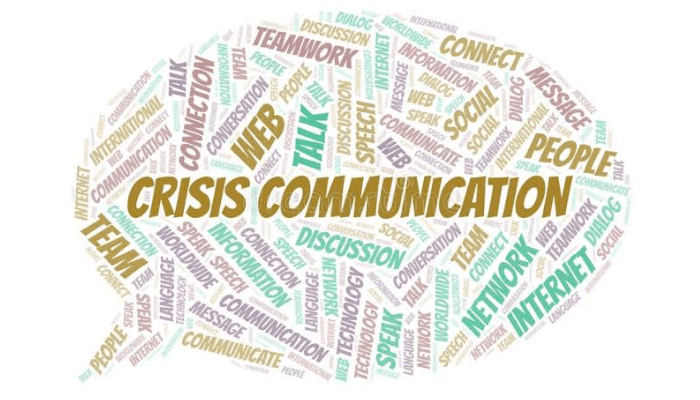By Obiotika Wilfred
Revolutions, uprisings, and global networks led to development in most Asian countries, which were on par with African countries in terms of the Human Development Index (HDI), Gross Domestic Product (GDP), and income per capita in the early 1990s. Most African countries gained independence in the 1950s and 1960s. Apart from Haile Selassie of Ethiopia, all African countries were colonised during the era of Europeans scrambling for resources in Africa. The need for sound history cannot be overtaken. J.M. Roberts, in his shorter illustrated “History of the World”, gave insight into new views, values, and the era of unrest. History has shown that generations come and go, but human nature remains unchanged, and this is the conflict of the ages. It’s glaringly implausible to attest to the good desires of the West in speeding up the spate of development in African countries.
Western ideology and influence have done nothing but enrich African politicians and elites, yet the general populace is impoverished and oppressed. Education, religion, and politics, which spearheaded and speeded up development, civilization, and technological advancements in the West, turned out to be a curse, scam, and sort of harbinger of poverty in many African countries. Isolating the separate struggles in countries like Niger, Togo, Guinea, Sudan, Mali, South Africa, Angola, Burkina Faso, and Liberia, they narrate the stories of third-world countries that take one step forward and two steps backwards.
Read also: No man’s land in Africa, the curious case of Bir Tawil
William Shakespeare (1564-1616) wrote in his poem “Winter”: “When icicles hang by the wall, and Dick the shepherd blows his nail, And Tom bears logs into the hall, and milk comes frozen home in paid, When blood is nipped and ways be foul, Then nightly sings the staring owl, “Bespeaks of cold and unpleasantness, which is prevalent in most African countries, especially Nigeria, even though it is not yet a season of winter. Raising a child in Nigeria has turned very unbearable for parents and guardians without any hope of restoration. The political leadership in Nigeria has proven to be incompetent and unreliable, giving way to irresponsible governance.
Banditry, kidnapping, terrorism, and even insurgency have persisted in Nigeria due to socio-economic grievances. Ethnic and religious tensions contribute to violence as Christians and Muslims vie for power, resources, or autonomy. A songwriter once said, “Mushroom mentality is the problem killing Nigeria. It is the cause of tribal wars; it goes with the entitlement of being born to rule and born to serve.”
The 40th American president, Ronald Reagan, bombed Tripoli, the Libyan capital, and when the whole world raised an alarm for such high-handedness and intimidation, he said, “We did it and we would do it again,so long as it is necessary to do so.”
The U.S. air attacks on selected targets in Libya on April 15, 1986, were in retaliation for the country’s perceived terrorist activities. The bane of terrorism, banditry, and kidnapping in Nigeria is Islamic fundamentalists. We can link them to ISIS, ISWAP, Al-Quaeda, the Islamic network, Fulani herdsmen, and Islamic terrorists. Nigeria was a British colony (1881–1906), and they cooperated with the Fulanis, who came through the desert in the 18th century. The two imperialists worked together for a common purpose: interests in Nigeria. We may be ignorant of the sponsors of terror in the 21st century, but it was clear to America and other powerful nations that Muammar Gaddafi, Saddam Hussein, and Osama Bin Laden sponsored terrorism in the 1970s, 1980s, and 1990s through rebels,anti-imperial groups, guerrillas, and the Al-Quaeda network. In 1980, the same Mr. Reagan ended the Cold War.
In July 2022, Britain’s prime minister was forced to step down after what many felt were lapses in integrity (the newly appointed prime minister stepped down just months later!). The event was triggered when the country’s health minister attended an annual parliamentary prayer breakfast, felt convicted about the need for integrity in public life, and resigned. When other ministers resigned too, the prime minister realised he had to leave. Such a remarkable moment can never be found in Africa. The legacy of colonialism is not just historical; it shapes the present realities of African nations.
We may not believe every imagination or what the mind conjures, yet the situation of things in Nigeria portends danger, destruction, and disaster. As we stand and gaze with our eyes fixed upon the farther shore, there’s neither a towering height nor a glimmer of light coming from Africa. Political leaders do well to protect themselves and their loot (spoils). What then can save African countries if not an imminent shake-up and turn-around? Voters often put their lives at risk in the face of the police, army, and other security apparatuses trying to choose who will lead them while the incumbent makes a frustrating decision for reelection and continuity, affecting the results and outcome of every election.
Decolonising Africa in the 21st century is a multifaceted endeavour that requires concerted efforts at political, economic, cultural, and environmental levels. It involves reclaiming identity, sovereignty, and agency in the face of historical injustices and contemporary challenges. Democratic elections in almost all African countries are shams plunging the citizenry into shambles. By addressing leadership problems and challenges, Africa can forge a path towards true independence, prosperity, and dignity for its people.
Obiotika Wilfred Toochukwu; Awka.
Join BusinessDay whatsapp Channel, to stay up to date
Open In Whatsapp





